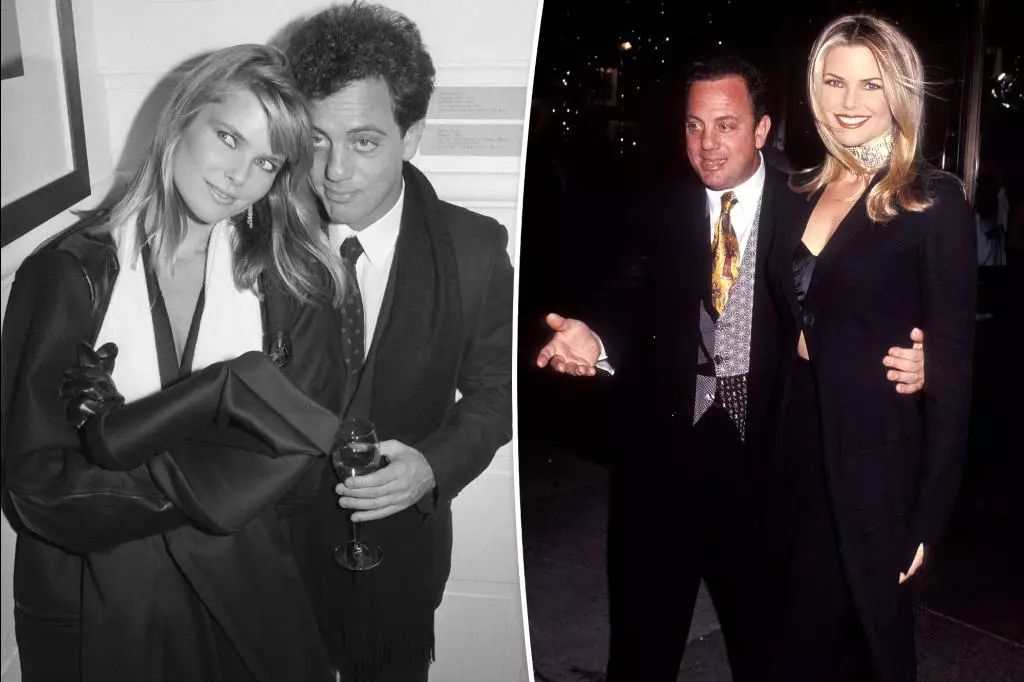In her new memoir, “Uptown Girl,” Christie Brinkley courageously revisits her tumultuous past involving her famed ex-husband, Billy Joel. A supermodel known for her beauty and grace, Brinkley also unveils the hidden struggles that lay beneath the glamorous surface of their relationship. In recounting a particularly harrowing episode where Joel, under the influence of alcohol, indulged in absurd acts—like consuming spaghetti directly from the stove—Brinkley grapples with the impact of alcoholism not merely as a personal tragedy but as a visceral reality that dismantled their family life. Such narratives reveal not just individual failures but cast a spotlight on the collective challenges faced by those entangled in the grip of addiction.
Brinkley expresses her reluctance in narrating these tales, revealing what it meant to choose between loyalty and authenticity. “I hesitated to put that scene in the book,” she confesses in an interview with the Los Angeles Times. This hesitation is a profound indicator of how stigma surrounding mental health and addiction impacts those involved, particularly powerful figures who are expected to maintain a facade of perfection. Situations like these exemplify the hidden battles and darkness often overlooked by the public eye.
The Burden of Secrecy
The memoir divulges how Brinkley’s love for Joel was overshadowed by the secrecy required to navigate his alcoholism. She admits, “I was 100% dedicated to Billy, but I never told anyone about our issues.” This silence reverberates a common experience for many around addiction: the instinct to protect loved ones at the cost of one’s own mental health. Brinkley’s decision to keep these issues private reflects the societal pressures faced by individuals linked to public figures. The emotional turmoil she experienced encapsulates the broader struggles of loved ones trying to fend off the potential onslaught of media scrutiny.
Altruism becomes a double-edged sword in such dynamics. Brinkley’s desire to shield her family, especially their daughter Alexa Ray Joel, resonates deeply as a mother’s instinct to protect her child amid chaos. Yet, the emotional toll of suppressing personal anguish manifests in painful solitude, a silently corrosive isolation that can devastate familial bonds. The stigma attached to both being married to a celebrity and the topic of addiction creates a dichotomy—while fans idolize the star, those close to them face the pernicious realities that fame conceals.
Love vs. Addiction: A Heart-Wrenching Dichotomy
Brinkley’s unwavering love for Joel is tangibly palpable throughout her recollections. She narrates moments where their relationship fluctuated between fear and affection, underscoring the complexity of loving someone entangled in addiction. In her words, “I knew that there had to be some way to help him,” she acknowledges a delicate balance that many want to strike in relationships affected by substance abuse. However, this fine line often leads to emotional exhaustion, where hope and despair grapple for supremacy.
For years, Brinkley remained committed, holding onto a vision of healing despite knowing the obstacles before her. Eleven years entwined with Joel ultimately concluded with painful realizations—her realization that some adversities, such as addiction, cannot simply be loved away. The toll is evident; Brinkley emerged from the relationship scarred by loneliness and heartache, yet with a determination to reclaim her narrative.
Finding New Beginnings
More than three decades after their painful divorce, Brinkley’s respectful remarks about her relationship with Joel today indicate a profound maturity. They maintain a cordial friendship, and her reflections reveal that healing can take many forms. “He lives mainly in Florida… but when he comes by to see Alexa, he’ll come in and say hello,” she shares, highlighting the possibility of nurtured relationships beyond the fractures of past traumas. Herein lies a powerful message: relationships can evolve.
However, Brinkley’s acknowledgment of never wanting the marriage to end is bittersweet, reflecting the deep-seated wounds left by addiction. “But his drinking was bigger than the both of us,” she states, authentically capturing a sentiment echoed by many who’ve been in similar situations. The gravity in such admission serves as both a confession and a healing moment—it’s a testament to resilience amidst reality’s harshness.
Christie Brinkley’s memoir is an evocative journey through the intricacies of love, loss, and the all-too-often neglected challenges of addiction. In bringing such narratives to light, she signifies the importance of truth in a world that often prefers silence. By opening up about her past, Brinkley does not merely recount her experiences but rather offers the gift of understanding to countless others navigating similar struggles.


Leave a Reply